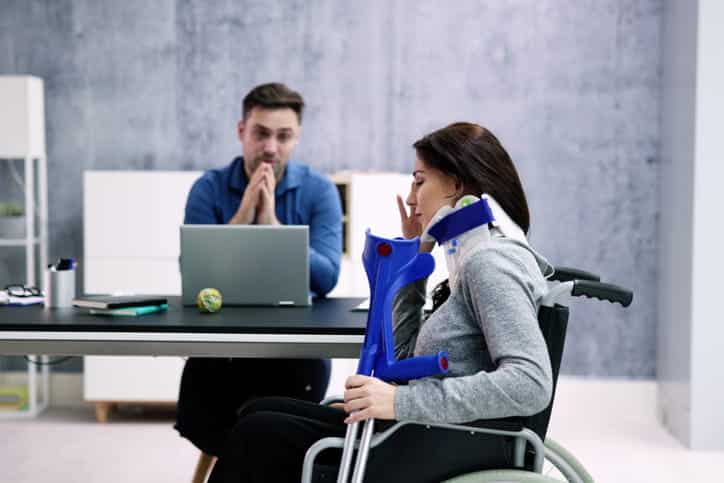How Can a Lawyer Help With My Personal Injury Case?

After you suffer an injury in Miami due to someone else’s negligent or wrongful actions, you will face challenges to both your health and finances.
Your injuries may require expensive medical treatment. Studies report that medical debts contribute to two-thirds of bankruptcies in the U.S. Recovering compensation for your treatment, therapy, and medication could save you financially.
However, the system is not designed to help you. Tort laws provide the basis for all injury claims. They involve complex legal concepts you might need help using. And insurance companies do not earn profits by paying claims. They will employ every tool they have to ensure you receive as little as possible.
Facing these challenges, you might wonder, “How can a lawyer help with my personal injury case?” Lawyers have the legal knowledge and experience to assemble and present a case that will get you the best possible settlement for the facts of your case.
Surveys show that involving a lawyer in your claim increases the likelihood of a settlement as well as the average amount you can receive.
What Do Personal Injury Attorneys Do?
All lawyers study tort law in law school. These legal concepts define when an injured person can pursue a legal claim against the person or business that caused their injury. Although tort law appears on the bar exam, not all lawyers are personal injury lawyers.
When you hire an attorney for your personal injury case, you should look for:
- Experience handling injury cases like yours
- A track record of successfully resolving injury claims
- Communication skills to persuade insurers and juries
Your Miami personal injury law firm will handle all the details of your case, from the initial investigation to presenting your case in an insurance claim or lawsuit. Most cases involve three stages, and the responsibilities of your personal injury lawyers will vary according to each stage.
Preparing Your Case
An experienced personal injury lawyer knows how to lay the groundwork for a successful claim.
They start by listening to your story and understanding your goals. Your lawyer will evaluate your case by accurately determining the damages you can seek. You will use the value of your case to make informed decisions about the handling of your case.
This calculation will depend on several factors, including:
- Your medical bills
- Your income losses
- Your out-of-pocket expenses
- The severity of your injuries
- Whether your injuries caused any long-term or permanent disabilities
You need evidence to prove your claim. This evidence can include:
- Witness testimony, including your own testimony
- Videos and photos of your accident and the accident scene
- Physical and forensic evidence from the accident
- Medical records documenting your injuries, treatments, and prognoses
- Expert testimony to support scientific or technical claims
Much of your case will rely on fact witnesses and expert witnesses. Fact witnesses testify about what they perceived. They might testify that they saw the other driver run a red light and hit you.
A witness might also testify about their other senses. They might testify that they smelled something burning before a drill injured you with an electrical shock.
Expert witnesses, by contrast, give opinion testimony based on verified scientific or technical theories. An expert might testify about the likelihood that you will regain your ability to walk after a brain injury. Or they might explain how a tire manufacturer used the wrong adhesive, causing your tires to fail under normal driving conditions.
In either case, your lawyer takes depositions so they know what your witnesses and the other side’s witnesses will say in court. In civil cases, the lawyers for both sides cannot, for the most part, present surprise witnesses.
Handling Your Insurance Claim
Almost all personal injury cases begin with an insurance claim. Some examples of liability insurance that might cover your bodily injuries include:
- Medical malpractice insurance: Covers medical negligence
- Auto liability insurance: Covers negligent driving
- Homeowners insurance: Covers homeowner negligence
- Business liability insurance: Covers employee negligence
You seek insurance benefits by filing a claim. Your lawyer will prepare the claim, including proof of your losses. With only a few exceptions covering defective products and dog bites, this claim must prove negligence.
Negligence occurs when a party fails to meet a duty of care owed to the victim. The nature of the duty will depend on the relationship.
Drivers owe legal duties to drive with reasonable care and prudence to motorists, pedestrians, and cyclists. Property owners and managers owe a legal duty to guests to keep their premises reasonably free from hazardous conditions.
These parties breach this duty by doing something that poses an unreasonable risk of injury or death to others. The breach might constitute an act, like running a stop sign, or an omission, such as failing to mark or mop up a spill in a busy restaurant.
The insurer assigns an adjuster to investigate your claim. The adjuster protects the insurer by ensuring it only pays claims it is obligated to pay under the policy. But in doing so, the adjuster will use every tool at their disposal to get you to settle for the smallest amount possible.
Your lawyer protects your interests by responding to claim denials and negotiating with the adjuster for the best possible settlement. To do this, your lawyer will prepare a legal strategy to argue for fair and just compensation, then execute it by presenting the evidence and legal arguments to support it.
Taking Your Case to Court
Insurance companies do not settle claims easily. They have a financial incentive to frustrate you into accepting a settlement below the value of your claim. Your lawyer will evaluate each settlement offer and advise you about the possible responses based on your damages.
You may need to file a lawsuit when:
- The adjuster persists in a claim denial
- The insurer refuses to make a fair settlement offer
You need someone who knows tort law and court procedure to file a lawsuit. While you always have the right to represent yourself in a lawsuit, the cost of making a mistake is high. Injured people often choose to hire a lawyer to ensure the lawsuit is filed and litigated correctly.
A Florida personal injury lawyer will draft the complaint to initiate the lawsuit. The complaint explains how the at-fault party caused your injuries and bears the liability for the resulting losses.
The insurer will join the lawsuit and defend its customer. After they respond to the lawsuit, discovery starts. During discovery, the parties exchange information. They can also seek information from third-party witnesses.
For example, if your traffic accident was captured on a store’s security camera, you might need to get the recording from the camera’s owner. This evidence will build your case for trial.
As the plaintiff in the case, you get to choose whether you want a trial before a judge or jury. Most plaintiffs prefer jury trials since ordinary jurors will likely have more sympathy for you than an insurance company.
Whether you choose a bench trial only before a judge or a jury trial, your lawyer presents your evidence. The trier of fact will decide whether your lawyer has proven liability and, if so, award compensation for your losses.
Fighting for Your Interests
Your lawyer’s job is to use every tool to fight for your interests. Your lawyer will try to settle your case quickly and fairly when possible. But this settlement requires the insurer’s cooperation. Sometimes, your lawyer needs to convince the insurer that you have a good chance of winning the case before they are willing to settle.
Most cases never reach trial. According to one study, only 3% of personal injury lawsuits reach trial. As your lawyer litigates your case, the lines of communication for settling the case will remain open.
Many cases settle even after the parties spend weeks or months litigating them. Insurers do not like hiring lawyers when they have weak cases. In many situations, your lawyer just needs to expose their case’s weaknesses.
Contact a Lawyer To Learn More
Lawyers play two important roles. When they represent a client before insurers, jurors, and judges, they will advocate fiercely for their client’s positions.
But lawyers also play another role. They provide objective advice to their clients. Rather than trying to persuade the client, the lawyer must educate and counsel them in making the decision that helps them achieve their goals.
Call Bernstein & Maryanoff Injury Attorneys today for a free consultation with an experienced Miami slip-and-fall accident lawyer.
Sources:
Crain, C. (2023). How Much Can I Get for My Personal Injury Case and How Long Will It Take?
Horvath, H. (2023). Can medical bankruptcy help with medical bills?
Johnson, J. (2024). Personal Injury Settlement Amounts Examples.
About the Author

Jack G. Bernstein, ESQ.
Jack Bernstein is a hard-working and highly motivated personal injury attorney in Miami, Florida with over three decades of experience. He is a strategist and idea person, with a genuine passion for helping his firm’s clients. If you’ve been injured, contact Jack Bernstein today for a free evaluation of your case.

